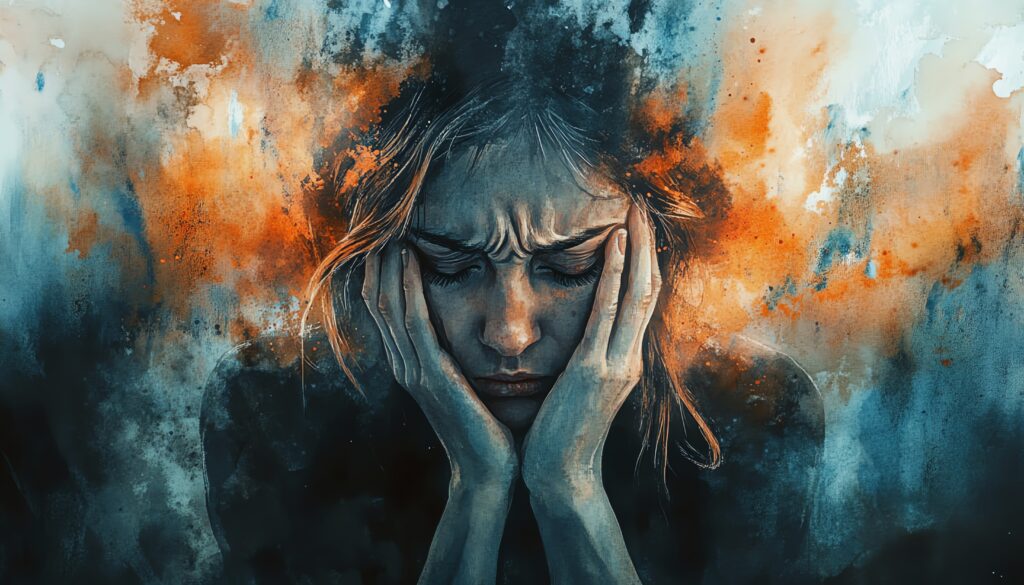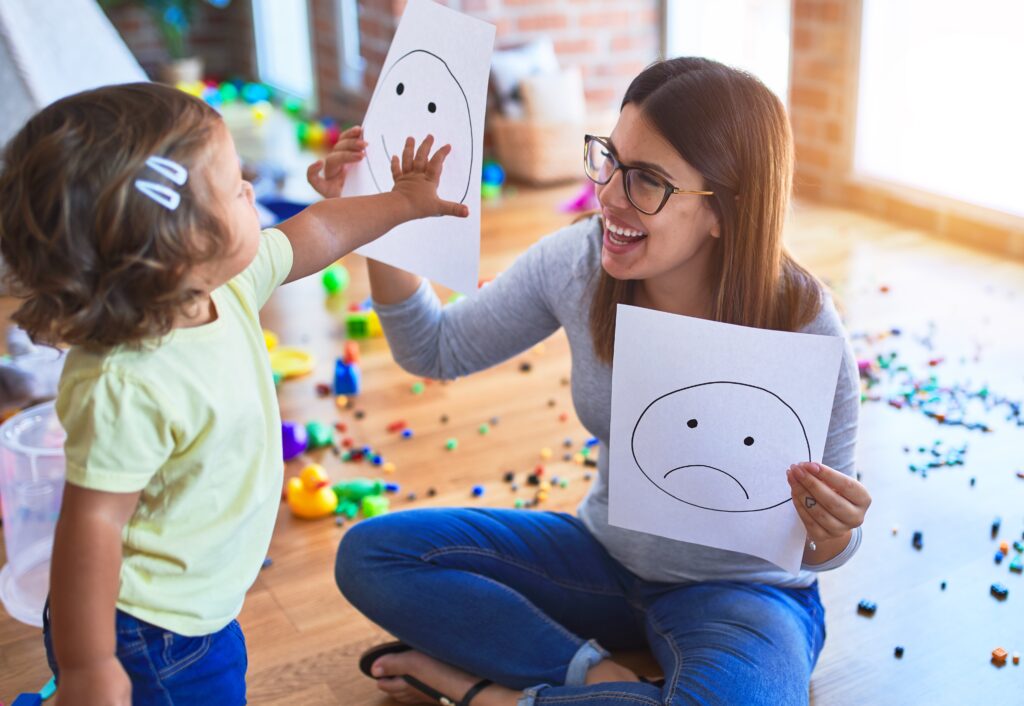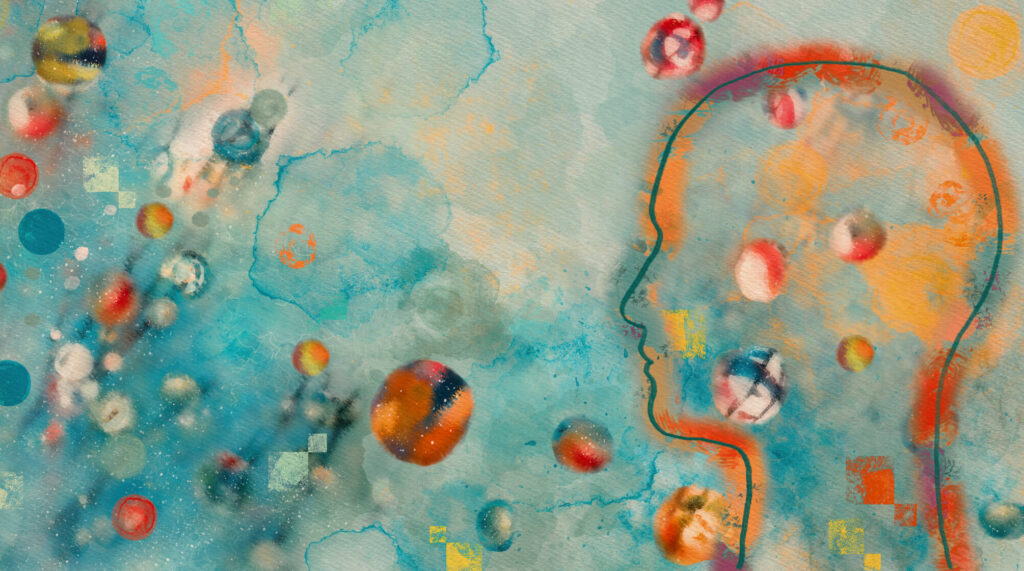For those of us who currently struggle with anxiety or had it in the past, we know what an awful affliction it can be. Not only can anxiety be physically painful, but it can also debilitate us and prevent us from moving forward with our lives in a productive manner. It can lead to things like depression, sleep troubles, social isolation, and problems at home, work, or school. The intensity of anxiety can fall anywhere along a spectrum ranging from severe recurrent panic attacks to occasional low-grade nervousness. It is difficult to describe the visceral feeling of anxiety, but in general, it feels like an overall sense of dread, angst, worry, or dis-ease within the mind-body, and it can manifest symptoms such as tremors, restlessness, stomach or intestinal problems, difficulty breathing, physical tension, lethargy, and/or incessant mental chatter, among other things.
Many people today still hold the belief that anxiety is a sign of weakness; that it means someone isn’t mentally tough enough. Not only is this untrue, but to my knowledge, it does not seem to help those in the long-term struggling with anxiety. This “buck up” mentality comes from a general cultural stigma against mental illness, and from a misunderstanding about the real nature of anxiety. If we want to get to the bottom of anxiety and resolve its underlying causes, then the first step is acknowledging that it exists and that it can be a serious issue.
In the ever-growing field of psychology and mental health, I have come across varying definitions and explanations of anxiety. It seems that not everyone agrees about what causes it, let alone how to treat it! Since knowledge is power, in this article I will attempt to provide an understanding of anxiety from different perspectives and offer tools for managing and/or overcoming this pervasive condition. As you read below, remember to be kind with yourself. Nobody has ever resolved their anxiety with judgment or self-condemnation…only compassion.
Fear of the Unknown
From the perspective of a behavioral psychologist, anxiety is defined as a fear or apprehension of some unknown external stimulus or future outcome. Essentially, while fear is categorized as a response to a known threat (i.e. a car swerving in front of you on the highway), anxiety is considered a response to an unknown threat or some looming potential danger (i.e. “I’m worried about losing my job.”). It is generally accepted that fear and anxiety, although unpleasant, are natural human responses to our environment. Protecting ourselves and planning ahead for all possibilities can be a sign of healthy pragmatism, and anxiety can be the jumpstart we need to prepare for our future. But if the anxiety becomes persistent and overwhelming, it may begin to impede normal functioning.
Hyperarousal of the Nervous System
In physiological terms, fear is seen as a biological and evolutionary adaptation for protecting us day-to-day. It activates the fight-flight-freeze-or-fawn (F4) response, which is also known as the acute stress response. This means that when we are faced with a potential or imminent threat, our sympathetic nervous system sends a cascade of hormones through the body to drive us to respond in one of four ways for our protection: either we resist, flee, freeze, or submit. However, if we are exposed to repeated threats, then activation of the F4 response becomes commonplace, our bodies become fatigued, and our brains receive the signal that we are in a perpetual state of danger. When this happens, a groove is created in the brain, and the F4 response is put on autopilot, leading to continual hyperarousal of the nervous system, i.e. anxiety. At this point, our brains are perceiving threats everywhere even where there are none. Treating anxiety from this perspective means retraining the brain and body to respond adaptively to the environment.
Trauma
From a psychotherapeutic lens, anxiety can come from exposure to trauma. Trauma is generally defined as experiencing, witnessing, or hearing about a life-threatening situation, serious injury, neglect, or abuse of any kind. When we are exposed to a single major trauma and/or to repeated smaller traumas, we become vigilant to the fact that something like this might happen again, and that next time it could be worse. Thus, anxiety becomes a natural symptom of trauma, and reducing anxiety means working through the trauma.
Underlying Health Issue
From a medical perspective, anxiety could be the result of heart problems, breathing issues, chronic pain, gastrointestinal ailments, or medication side effects. When dealing with anxiety, it is important to rule out any underlying medical conditions as potential factors.
Fear of Feelings
While the behavioral and physiological perspectives recognize anxiety as a response to an external stimulus, the psychoanalytic view sees anxiety as fear of an internal stimulus. Specifically, anxiety is the fear of our own feelings. As we go through life, our experiences activate certain feelings in us – love, joy, fear, anger, sadness, disgust, surprise, guilt, and shame. If we are afraid to feel certain emotions, or we dislike them, then we get anxiety. From this understanding, if we want to overcome our anxiety, then all we need to do is face our feelings. This may sound simple, but it isn’t always easy! Our feelings and emotions are powerful forces, and they often contain information about ourselves and our surroundings. Do we let them arise, or do we shut them down?
Defense Mechanisms
This is when we may use a defense mechanism to stop feeling. In other words, anxiety arises as a sign that we are feeling something we don’t want to feel, so it sends a signal to the subconscious mind to put up a defense. Bear in mind that all of this happens within seconds, so many of us are not even aware that we are doing it.
Psychological defenses are things like: Withdrawal – where we remove ourselves from situations that make us feel uneasy, or we get lost in our heads. Denial – where we ignore our feelings or deny that we are feeling at all. Projection – where we perceive that another person is feeling the way we feel so that we don’t have to acknowledge it. Control – where we try to control our surroundings to control our feelings. Somatization – where our feelings turn into physical symptoms, like stomachaches, headaches, inflammation, or pain. Acting Out – where we act out our feelings so we can get rid of them. Intellectualization – where we overthink so we don’t have to feel.
There are many kinds of defense mechanisms that people use to ward off their feelings. These are just the most basic ones, and we all use them to some degree in our lives. In fact, defenses can be helpful if our feelings are overwhelming; they allow us to function normally without getting bogged down. But if we are overusing our defenses, then they become an unhealthy subconscious habit and, in a vicious cycle, can actually start to create anxiety rather than stop it.
Negative Beliefs
From a cognitive view, anxiety can come from negative beliefs we have about ourselves, or low self-esteem. Our negative thoughts can sometimes make us feel terrible. When this is the case, oftentimes we discover the presence of an inner critic – a voice in our heads eternally judging us, condemning us, or making us second-guess our choices and behaviors. We ruminate, wonder how anyone could love us, or worry about engaging in even the most harmless social situations. This kind of anxiety – whether it is social or about our value as a person – can come from the false beliefs that we are weak, unremarkable, or unlovable. In truth, each one of us is a powerful and unique individual full of love and potential. All we have to do is realize it.
Existential Disconnectedness
From a humanistic perspective, anxiety arises out of a fear of death, and by extension, a fear of life. In other words, anxiety occurs when we begin to question the meaning of our existence, or we forget ourselves as whole and complete beings, self-reliant and social. This kind of anxiety emerges when we feel detached from our humanity – disengaged from our surroundings, isolated from others, disconnected from our higher power, or confused about our life’s purpose. We may feel as if there is a dark cloud hovering over our heads. As a result of our existential malaise, anxiety can inform us that we have lost our way, and it can prod us to get back on the right track.
Identification with the Mind-Body
From a contemplative-spiritual perspective, anxiety is an inevitable result of our identification as ego-centric beings without a deeper nature. According to many contemplative teachings, our true nature is open and clear consciousness. In other words, we have a mind for thinking, a heart for feeling, and a body for acting, but we are aware presence. This means that the mind-body is not who we really are; it is not our true essence, only a part of it. This does not mean we neglect those aspects of ourselves. On the contrary, our mind-heart-body systems are important and useful tools for experiencing life in all its variety. However, anxiety appears when we identify with the mind-body only and not with our aware presence. As soon as we are able to let go of our limited identity and stop believing the thoughts and stories of the mind, we drop into presence and anxiety ceases.
Ten Tools for Overcoming Anxiety
The following list is an offering of ten tools, tips, or exploratory suggestions that anyone can use to help reduce their anxiety. They incorporate the different viewpoints expressed above, so pick and choose which ones you like:
- Practicing Presence: Stop and pay attention. Tune into your five senses: notice objects and people around you, listen to sounds you may hear, focus on any smells wafting through the air, rub your hands together, or feel your feet on the ground. Practicing this kind of sensory technique can take us out of anxiety and into the present moment.
- Deep Breathing: Take some slow, deep, steady breaths – from the belly, not the chest – with the exhales lasting longer than the inhales. You can count if you like. This will send a signal to your brain and heart that you are OK, and your body and mind will calm down, enabling you to think more clearly and act more efficiently. Practice as often as you like.
- Relaxation: Notice any tension in your body – muscles, feet, hands, shoulders, chest, belly, jaw, and head. Do your best to relax any physical tension you may feel. You could download Calm or a similar app (which is free and easy to use), do some yoga poses or stretches, listen to soothing music, go for a walk on the beach, or do anything else you like to bring calmness into your life. Integrate conscious relaxation into your schedule for a few minutes every day.
- Research: Empower yourself by learning more about anxiety. Do some research on the different kinds of anxiety and their symptoms. Get to know the available treatments in your area, and read success stories about how people overcame their anxiety. Make a toolkit of helpful techniques you discover. If you are up for it, investigate the different types of psychological defense mechanisms that exist and see if you can identify any that you use in daily life – by yourself, with others, or in certain situations.
- Feeling: Make time for yourself to feel your feelings, and notice which ones arise. If there is anxiety, do you sense an emotion hidden underneath it? Do you notice any resistance to your feelings? What information are your emotions conveying to you? Allow your feelings to express and pass through without judgment. Whether you are doing this on your own or working with a professional, be sure to go slow. Emotions are powerful energies and should be treated with respect and wisdom so that no harm is done.
- Asking For Help: If you are struggling, turn to the supportive people and resources in your life and ask for help. This can be one of the most important steps you take for your mental health. If you are in constant pain or unable to function, consider speaking with your doctor or a psychiatrist about anti-anxiety medications or a useful alternative. If you recognize that you may be suffering from trauma, reach out to a trauma therapist, and keep in mind that it is not necessary to relive your trauma in order to heal from it. Or, consider seeking help from a professional who specializes in anxiety.
- Recognizing Your Thoughts: When anxiety arises, notice the thoughts that come with it. What do they say? Is there a theme? Do you recognize the presence of an inner critic? Keep track of what you discover, and see if you can establish a pattern or draw connections to specific events, time periods, or people.
- Changing Your Thoughts: When you notice negative thoughts, try replacing them with positive thoughts. For example: If a negative thought arises, “I am a failure,” try saying this to yourself instead: “I made a mistake, but I know that I am a capable individual, and if I keep persevering, eventually I will succeed.” If replacing thoughts doesn’t feel good to you, then try reframing them instead: “Even a failure can be considered a success if I change my attitude about it. Success is in the eye of the beholder.” In other words, be flexible and focus on your values and goals.
- Introspection: Look deeply at yourself. Perhaps answer these questions honestly: Am I happy? Do I like my career and the trajectory of my life? Are my relationships satisfying? Who am I? Sometimes just acknowledging and accepting how we feel and what we want can be enough for a change to happen.
- Meditation: Sit comfortably in a quiet room for just five minutes. Can you witness your thoughts, feelings, and breath dispassionately, like clouds passing through the sky, as they move through the field of your consciousness? Can you accept anxiety as it is in this moment? Can you let go of the mental narrative and rest in aware presence? See what happens.
In Conclusion
Anxiety can be a serious and often misunderstood ailment that has the potential to wreak havoc on every aspect of our lives. From this article, hopefully you have gained a deeper understanding of what anxiety is from different viewpoints, how it arises, and how it can be seen through. And hopefully you are now more prepared with some useful tools for the next time when anxiety rears its head. In my eyes, each perspective of anxiety presented here is one piece of a greater whole, with no one view being more important or more accurate than another. The question is: which one(s) resonate with you? This article, of course, is not an exhaustive explanation of anxiety, nor does it provide every proven method for dealing with it. My intent has simply been to share some of the most important things I have learned about anxiety so that you can be better equipped to address it, should it appear in your life or in the life of a loved one.
Resources for Further Reading:
- Rewire Your Anxious Brain: How to Use the Neuroscience of Fear to End Anxiety, Panic & Worry by Catherine M. Pittman, PhD and Elizabeth M. Karle, MLIS
- The Body Keeps the Score: Brain, Mind, and Body in the Healing of Trauma by Bessel Van Der Kolk, M.D.
- Living Like You Mean It: Use the Wisdom and Power of Your Emotions to Get the Life You Really Want by Ronald J. Frederick, Ph.D.
- There is Nothing Wrong with You: Going Beyond Self-Hate by Cheri Huber
- The Untethered Soul: The Journey Beyond Yourself by Michael A. Singer
Please visit goodtherapysandiego or contact us at (619) 330-9500 to get started with a therapist today!








